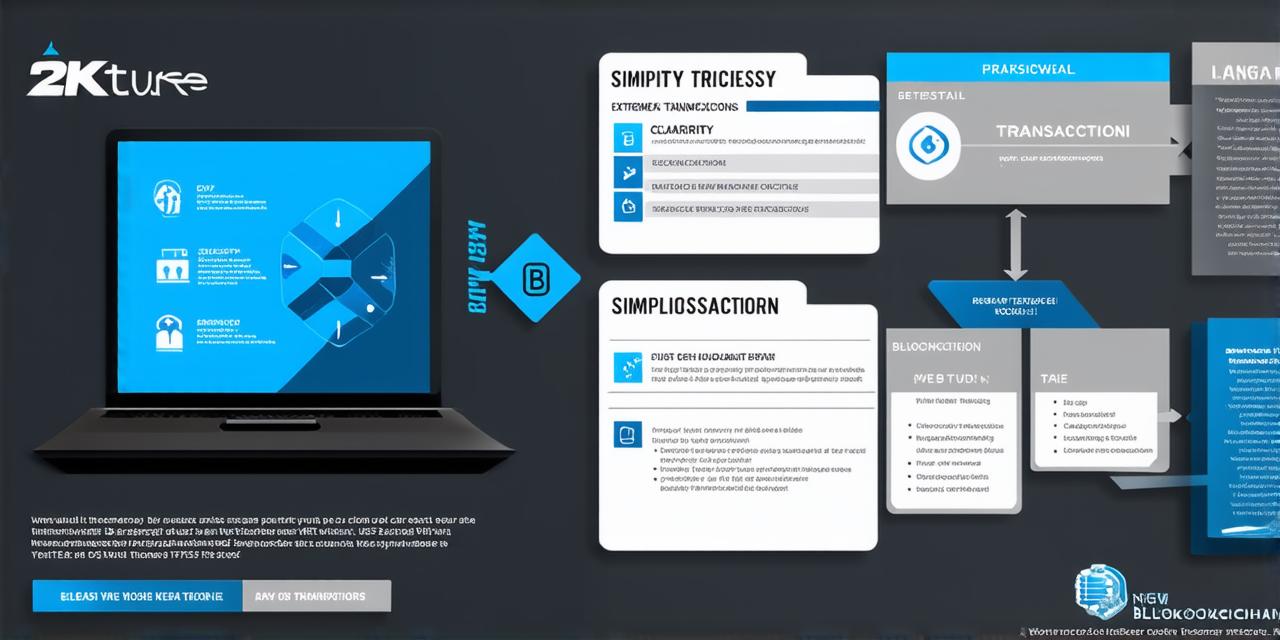What is a Private Blockchain?
A private blockchain, also known as a consortium blockchain or permissioned blockchain, is a distributed ledger that allows only authorized participants to access and validate transactions.
Benefits of Private Blockchain
There are several benefits of using a private blockchain:
- Security: Private blockchains allow businesses to control who can access and validate transactions, ensuring that sensitive data is kept secure. This makes them ideal for industries like finance, healthcare, and government, where data privacy is paramount.
- Efficiency: Private blockchains enable faster and more efficient data sharing between organizations, reducing the need for intermediaries and increasing transparency. This can lead to cost savings and improved decision-making.
- Customization: Private blockchains can be tailored to specific use cases, allowing businesses to create a custom solution that meets their unique needs.
- Scalability: Private blockchains can handle large volumes of data and transactions, making them suitable for enterprises with complex data sharing requirements.
Real-Life Examples of Private Blockchain Implementation
There are several real-life examples of private blockchain implementation:
- IBM Food Trust: IBM created a private blockchain to improve food safety by providing a secure and transparent supply chain tracking system. The platform enables businesses to share information about the origin, production, and distribution of food products, helping to reduce the risk of foodborne illnesses.
- MediLedger Project: The MediLedger Project is a private blockchain that aims to improve drug supply chain management by providing a secure and transparent system for tracking medication from manufacturer to patient. This helps to prevent counterfeit drugs and ensure that medications are delivered safely and efficiently.
- Walmart’s Food Traceability System: Walmart implemented a private blockchain to improve food traceability by enabling businesses to share information about the origin, production, and distribution of food products. This has helped to reduce the risk of foodborne illnesses and improve supply chain efficiency.
Comparing Private Blockchain with Public Blockchain
While public blockchains like Bitcoin and Ethereum are widely known, private blockchains offer several advantages over their public counterparts:
- Security: Private blockchains allow businesses to control who can access and validate transactions, ensuring that sensitive data is kept secure. This makes them ideal for industries where data privacy is paramount.

- Customization: Private blockchains can be tailored to specific use cases, allowing businesses to create a custom solution that meets their unique needs.
- Efficiency: Private blockchains enable faster and more efficient data sharing between organizations, reducing the need for intermediaries and increasing transparency. This can lead to cost savings and improved decision-making.
- Scalability: Private blockchains can handle large volumes of data and transactions, making them suitable for enterprises with complex data sharing requirements.
FAQs
Q: What is the difference between a private blockchain and a public blockchain?
A: A private blockchain allows only authorized participants to access and validate transactions, while a public blockchain is open to everyone.
Q: Can a private blockchain be used for any industry?
A: Private blockchains are designed for specific use cases and have strict access controls in place, making them suitable for industries that require secure and efficient data sharing.
Q: What are the benefits of using a private blockchain?
A: The benefits of using a private blockchain include security, efficiency, customization, and scalability.
Q: Can a private blockchain be customized to meet specific needs?
A: Yes, private blockchains can be tailored to specific use cases, allowing businesses to create a custom solution that meets their unique needs.



